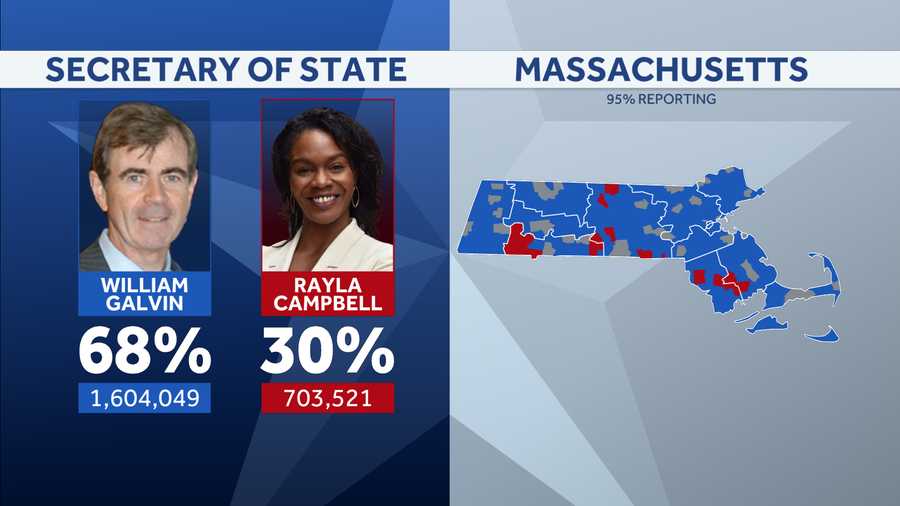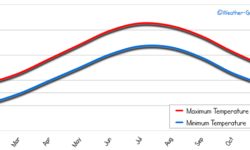
Massachusetts, often referred to as the bluest of blue states, has long been a bastion of progressive politics and a reliable stronghold for the Democratic Party. With its consistent support for Democratic candidates at both the state and national levels, Massachusetts has solidified its reputation as a liberal stronghold. However, a closer look at Massachusetts news and election data reveals a more nuanced political landscape than the common narrative might suggest.
In this blog, we will delve into the history of Massachusetts politics, analyze recent election data, and explore why the state has earned its “blue” reputation. We’ll also examine how certain trends within the state could challenge the dominance of the Democratic Party in the future, offering a comprehensive view of news today Massachusetts and the state’s political dynamics.
A Brief History of Massachusetts Politics
To understand why Massachusetts has been a Democratic stronghold for so long, it’s important to look at the historical context of the state’s political evolution. Massachusetts has a rich political history dating back to the founding of the United States. Initially, the state was a hub of Federalist support, but as time progressed, the state became a home for more progressive, liberal ideals.
The modern era of Massachusetts politics, especially post-World War II, has been dominated by the Democratic Party. Figures like Senator Edward Kennedy, a towering figure in American politics, and former Governor Michael Dukakis, who ran for president in 1988, have cemented the state’s image as a beacon of liberal policies.
Despite its overwhelmingly Democratic identity, Massachusetts has seen a number of Republican governors, including Mitt Romney, who governed from 2003 to 2007 before becoming a U.S. Senator from Utah. This demonstrates a certain level of ideological diversity that complicates the simple “blue state” narrative.
Election Data: A Consistent Blue Trend
Massachusetts is known for reliably voting Democratic in presidential elections. Since 1928, the state has only voted for a Republican presidential candidate four times, the last being Ronald Reagan in 1984. In fact, Massachusetts was the only state to vote for Democrat George McGovern during the 1972 presidential election, further solidifying its blue reputation.
Looking at Massachusetts news today, it’s clear that the state continues to be a solid Democratic base. In the 2020 presidential election, Joe Biden won Massachusetts by a wide margin, securing 65.6% of the vote compared to Donald Trump’s 32.1%. This overwhelming support for Biden was consistent with recent trends: in 2016, Hillary Clinton won the state with 60% of the vote, and Barack Obama carried Massachusetts by similar margins in both 2008 and 2012.
Local Elections: A Different Story?
While Massachusetts reliably votes Democratic in national elections, the story is a bit different when it comes to state politics. Despite the dominance of Democrats in the state legislature, Massachusetts has a history of electing moderate to liberal Republican governors. Charlie Baker, for example, served as governor from 2015 to 2023 and was one of the most popular governors in the country during his tenure. Baker’s success as a Republican in a deep-blue state reflects the state’s preference for moderate governance at the state level, regardless of party affiliation.
Baker’s moderate stances on issues like climate change, LGBTQ+ rights, and healthcare allowed him to maintain a broad coalition of support. His popularity underscores the fact that while Massachusetts leans Democratic in national politics, many voters in the state are comfortable with pragmatic, centrist Republicans when it comes to state governance.
This trend of electing moderate Republican governors, including figures like William Weld and Mitt Romney, shows that Massachusetts voters are not strictly tied to party lines but are open to candidates who align with their moderate to liberal values, regardless of party affiliation.
The Role of Major Urban Centers
A key factor in Massachusetts’ political identity is the influence of its urban centers, particularly Boston. As the state’s capital and largest city, Boston has long been a hub for progressive ideas and activism. Home to prestigious universities like Harvard and MIT, the city has attracted a highly educated and politically engaged population that overwhelmingly supports liberal policies.
Boston and its surrounding suburbs play a crucial role in shaping the state’s political landscape. In the 2020 election, Suffolk County (which includes Boston) gave Joe Biden a staggering 80% of the vote, highlighting the Democratic dominance in urban areas. The influence of these urban centers is mirrored in other parts of the state, such as Cambridge and Somerville, which are also known for their progressive politics.
However, it’s important to note that not all parts of Massachusetts lean as heavily to the left. Western and more rural parts of the state tend to be more conservative, and while they are often overshadowed by the political powerhouses in the east, they play a vital role in shaping the state’s overall political makeup.
Key Issues Shaping Massachusetts Politics
Several key issues have historically shaped and continue to influence politics in Massachusetts. These include healthcare, education, climate change, and social justice, all of which tend to align with the values of the Democratic Party. However, certain policy areas have also seen bipartisan cooperation, particularly at the state level.
Healthcare
Massachusetts has been a leader in healthcare reform, with its landmark 2006 healthcare law serving as a model for the Affordable Care Act. The state’s commitment to universal healthcare access remains a cornerstone of its political identity. Both Democrats and Republicans in the state have recognized the importance of maintaining and expanding healthcare coverage for residents.
Education
Education is another area where Massachusetts excels, often ranking among the top states for public education. The state’s strong emphasis on education policy has broad bipartisan support, but the Democratic Party’s focus on expanding educational opportunities for all, including increasing funding for public schools and addressing disparities, continues to resonate with the electorate.
Climate Change
Massachusetts is also a national leader in addressing climate change. The state has implemented aggressive policies aimed at reducing carbon emissions and increasing renewable energy usage. These efforts have garnered widespread support, particularly in urban areas where environmental activism is strong. Republican governors like Charlie Baker have also embraced climate action, highlighting the bipartisan appeal of this issue in the state.
Social Justice
Massachusetts has a long history of championing civil rights and social justice, and these issues remain central to its political discourse. From supporting LGBTQ+ rights to advocating for criminal justice reform, Massachusetts voters have consistently backed progressive measures aimed at promoting equality and fairness. This is a major reason why the state continues to trend Democratic, as the party aligns closely with these values.
Challenges for Republicans in Massachusetts
While Massachusetts Republicans have found success at the gubernatorial level, they face significant challenges when it comes to gaining traction in other races. The state legislature is overwhelmingly controlled by Democrats, and Republicans have struggled to compete in congressional races.
One of the major challenges for Republicans in Massachusetts is the state’s demographic makeup. The state’s large urban population tends to favor Democratic policies, and the highly educated electorate is more likely to support progressive candidates. Additionally, Massachusetts’ reputation as a liberal stronghold means that many voters simply associate the Democratic Party with the values they hold dear, making it difficult for Republicans to break through.
However, the success of moderate Republicans like Charlie Baker shows that there is still a path forward for the GOP in Massachusetts, particularly if they can appeal to centrist voters and focus on pragmatic solutions rather than ideological battles.
The Future of Massachusetts Politics
Looking forward, it’s clear that Massachusetts will continue to be a Democratic stronghold in national elections. However, the state’s willingness to elect moderate Republican governors suggests that there is more political diversity than the “blue state” label implies. As breaking news Massachusetts continues to unfold, it will be important to watch how the state’s political dynamics evolve, particularly as issues like healthcare, climate change, and social justice remain at the forefront of the political conversation.
Additionally, the growing importance of urban centers like Boston and the role of educated, progressive voters will likely keep Massachusetts in the Democratic column for the foreseeable future. However, as state-level races have shown, the electorate is more than willing to support a moderate Republican who aligns with their values on key issues.
Conclusion
Massachusetts’ reputation as a “blue state” is well-earned, thanks to its strong support for Democratic candidates in national elections and its progressive stance on key issues like healthcare, education, and climate change. However, a deeper dive into news Massachusetts and election data reveals a more complex political landscape where moderate Republicans can thrive at the state level.
As US news continues to focus on Massachusetts’ political future, the state remains a fascinating example of how a deeply Democratic state can still foster a level of ideological diversity that challenges traditional narratives.





